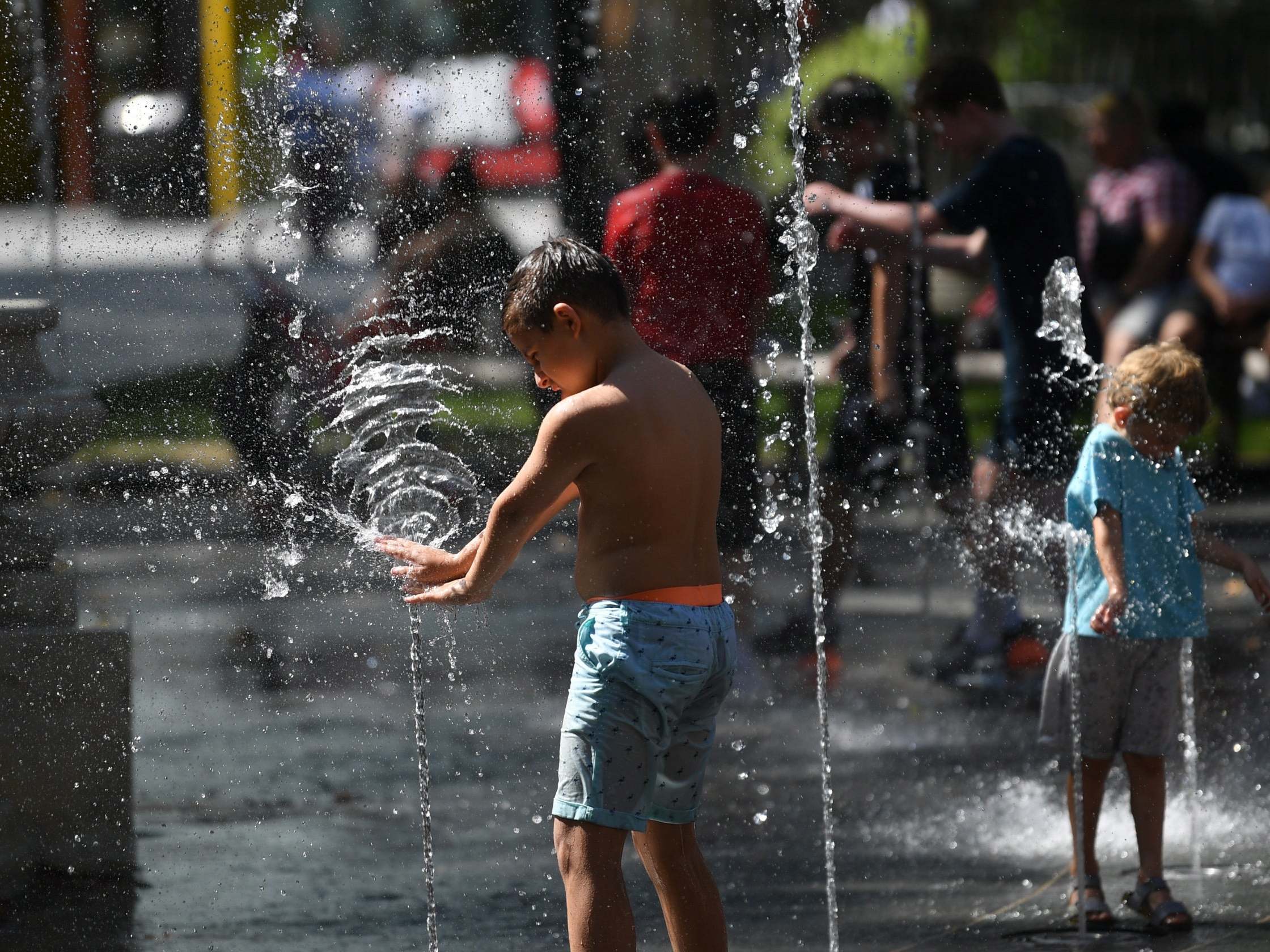This website uses cookies so that we can provide you with the best user experience possible. Cookie information is stored in your browser and performs functions such as recognising you when you return to our website and helping our team to understand which sections of the website you find most interesting and useful.

Schools should consider closing when classroom temperatures exceed 30C, according to new guidance issued by the mayor of London to help the city adapt to the climate crisis.
Bringing forward lesson times and relaxing dress codes during periods of extreme heat are also among new measures recommended by Sadiq Khan’s office, as temperatures reached 34C for the sixth day in a row in the capital.
The guidance also sought to shore up flood mitigation measures, warning that almost half of London‘s schools are already at medium or high risk of flooding, which is expected to become more frequent as global warming continues.
It also advised schools how to protect against water shortages, predicting that more frequent droughts, higher temperatures and the capital’s growing population will create a water deficit of more than 400 million litres per day by 2040, “meaning London may not have enough water to meet its needs”.
Noting that young children and the elderly are most at risk from extreme weather, the proposals unveiled by City Hall on Wednesday comprised a raft of “simple, cost-effective interventions” to help schools, nurseries and care homes to become more resilient to the effects of climate breakdown.
It also launched a pilot programme called Cool Spaces, publishing a map of sheltered and shaded places of refuge for Londoners when temperatures are extremely high. Indoor spaces had been planned for inclusion but were removed as the coronavirus pandemic has made social distancing needed.
The proposals emerged on a day when temperatures soar past 35C in the UK for the third day running. A temperature of 34.6C was recorded at St James’s Park in central London on Wednesday, the first time since 1961 that there had been six consecutive days of 34C and above.
According to Public Health England, three heatwaves in 2019 resulted in over 230 excess deaths across London. The older population were most at risk – with 108 excess deaths of people aged 65 or above occurring during the week starting 23 August alone.
Globally, the World Health Organisation has predicted that 15 per cent of the 250,000 annual additional deaths due to climate change between 2030 and 2049 will be due to heat-related stress among the elderly.
Studying five London care homes, researchers from City Hall, University College London and Oxford Brooks University found that residents appeared content with their conditions even when temperatures exceeded 30C, and were consistently less aware of the heat than staff, viewing cold temperatures as more of a threat.
They found that care homes will need to employ air conditioning in the future, with indoor temperatures forecast to increase by 2C by the 2050s and 4C some 30 years later.
“We are already seeing the impacts of a warmer climate on our city, with record breaking high temperatures becoming almost an annual fixture and the hottest August day in 17 years occurring this summer,” said London’s deputy mayor for environment and energy, Shirley Rodrigues.
She added: “At City Hall we are concerned that it is vulnerable children and elderly Londoners that will suffer the most.
“These audits for care homes and the guidance for schools and Early Years settings offer advice on how London can prepare for, respond to and recover from a changing climate.
“But we also need to tackle the situation at source which is why the mayor is redoubling efforts to tackle the climate emergency, lead a green and prosperous recovery, and bring London to net zero carbon by 2030.”



 Africana55 Radio
Africana55 Radio 

